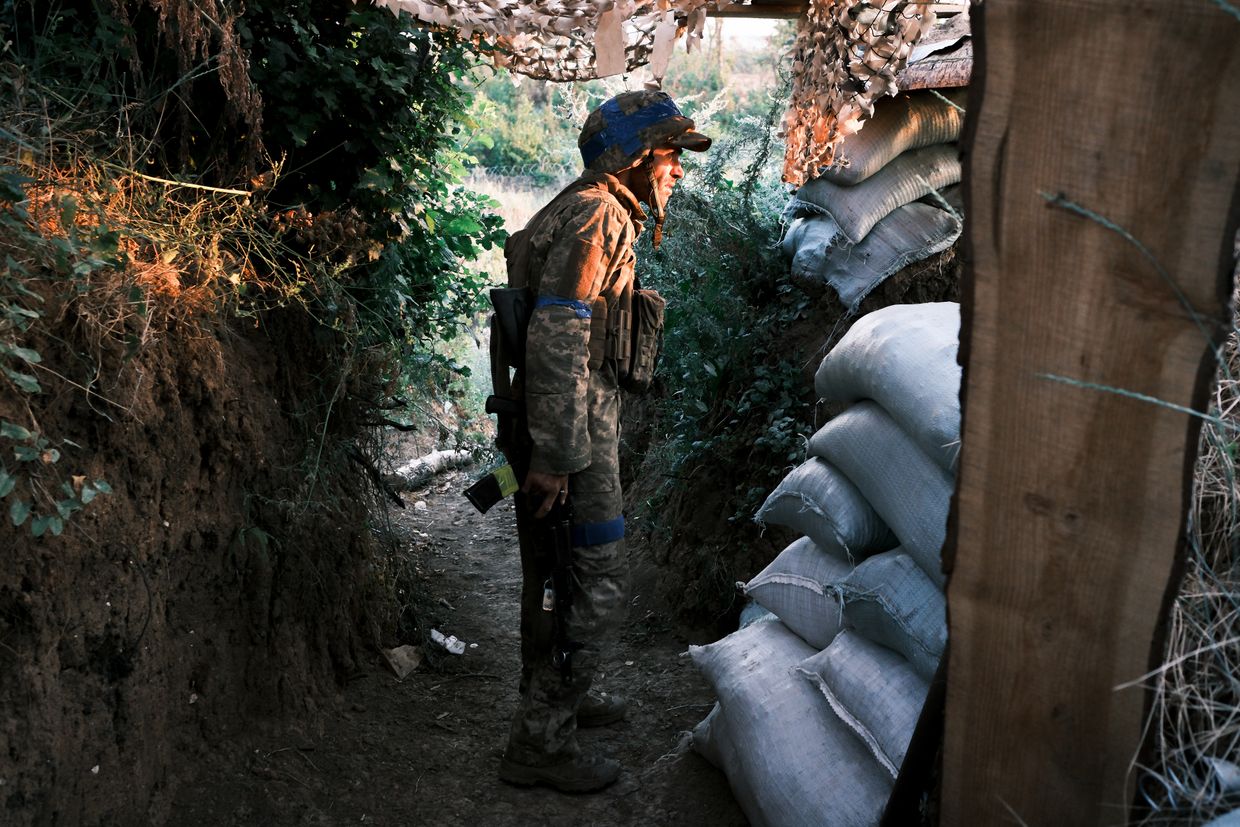Ukraine was “a blind spot” for Germans up until Moscow’s full-scale invasion, Franziska Davies, a historian of Eastern and Eastern Central Europe, told the Kyiv Independent in an interview.
“And if there is a blind spot, propaganda narratives can easily fill it with falsehoods,” Davies said, explaining why Russia-planted narrative about an alleged rise of neo-Nazism in Ukraine was so successful in Germany.
Multiple misconceptions about Ukraine, often created or promoted by Moscow, are still present in media and academia in the West. Russia’s influence has been especially strong in Germany, which was at first hesitant about arming Ukraine but has eventually become Ukraine’s second-largest provider of military assistance after the U.S.
According to a draft 2025 budget document obtained by Reuters, Germany will cut military aid for Ukraine by half next year. The news came amid increasing concern that a Donald Trump victory in the upcoming U.S. presidential election will prompt a dramatic drop in Washington's support for Ukraine's defense.
Amid Russia’s full-scale war, Davies of the Ludwig Maximilian University in Munich regularly visits Ukraine and speaks to Western audiences about the historical context of Russian aggression. Her work focuses on the histories of modern Russia, Ukraine, and Poland.
She is currently working on a book that examines the dissolution of the Soviet Union from a distinctly Polish and Ukrainian perspective.
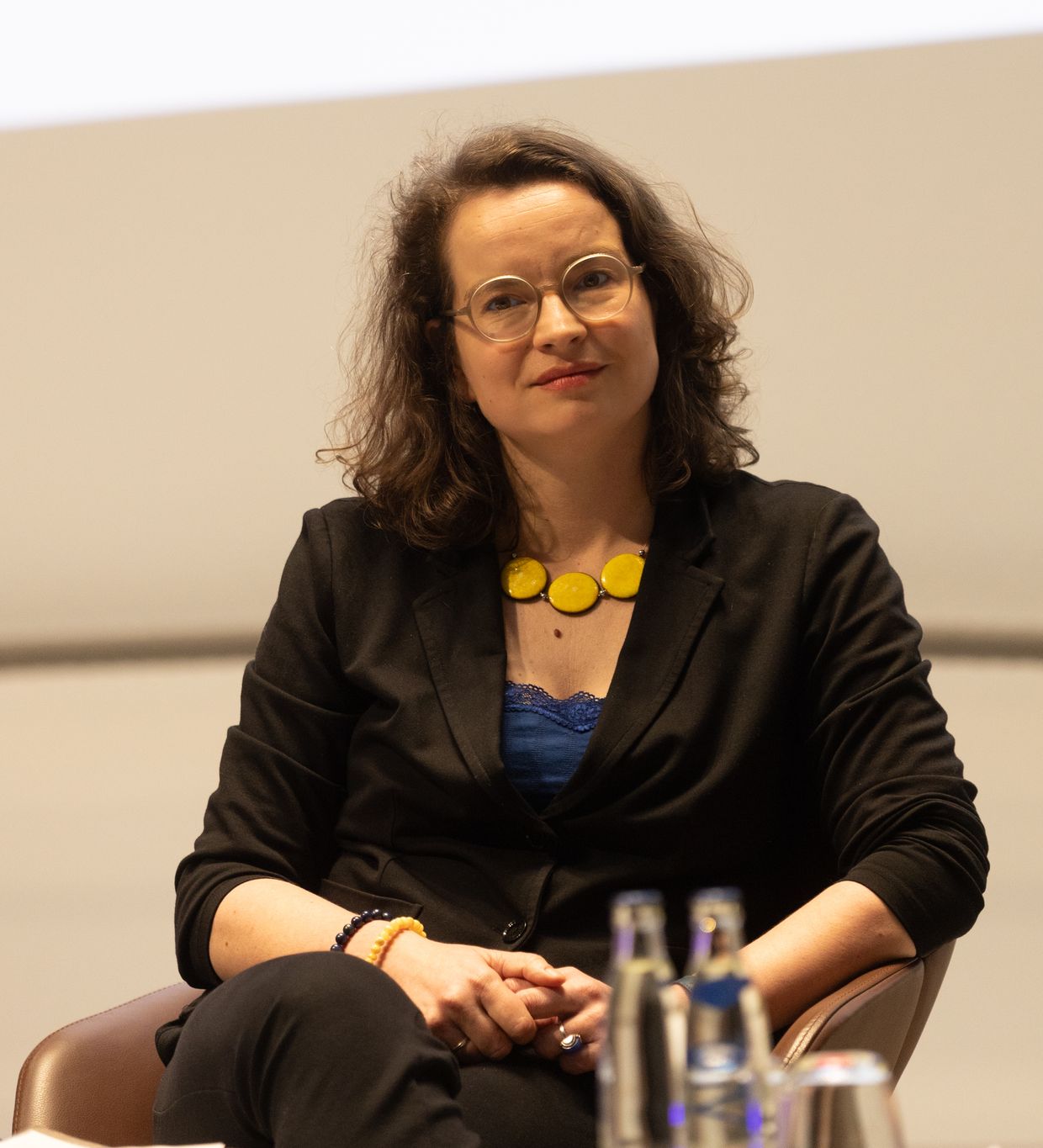
Davies co-founded the international academic network RUTA to facilitate the decolonization of Eastern European studies, which have long been dominated by a Russia-centered perspective. The organization held its inaugural conference in Ukraine’s Carpathian mountains on June 27-30.
The Kyiv Independent sat down with Davies to discuss the historical ties between Germany and Russia, German misconceptions about Ukraine and its nationalism, and the ongoing influence of World War II on German policies toward Eastern Europe.
This interview has been edited and shortened for clarity.
The Kyiv Independent: How would you describe the evolution of the German public opinion on Russia’s war against Ukraine?
Franziska Davies: The most important change is the decision to provide military support to Ukraine. Before Russia’s full-scale invasion, virtually every politician from every (German) party, even those more supportive of Ukraine, was not prepared to do this. It was very often argued that this had to do with Germany's responsibility toward Russia for World War II, which is nonsensical since Ukraine was one of the main theaters of Germany's war of annihilation. But it shows how much German public opinion and politics were centered around Russia and how much Ukrainian perspectives were disregarded before Feb. 24, 2022.
The full-scale invasion became a wake-up call for large parts of German society and politicians. Many in Germany's political class realized they had got (Russian President Vladimir) Putin and Russian society wrong. But at the same time, I'm quite critical that it took so long. I think the German policies toward Russia and Ukraine and also, for that matter, toward Poland and the Baltic states were a disaster up until 2022.
There is now much more solidarity with Ukraine. Many politicians really understand the threat posed by Russia, not only to Ukraine but to the whole of Europe and all Western democracies. But we still need a more radical change. We also need to deal with the reasons for Germany’s failure to support Ukraine and counter Russia before the full-scale invasion, despite all the warnings we had.
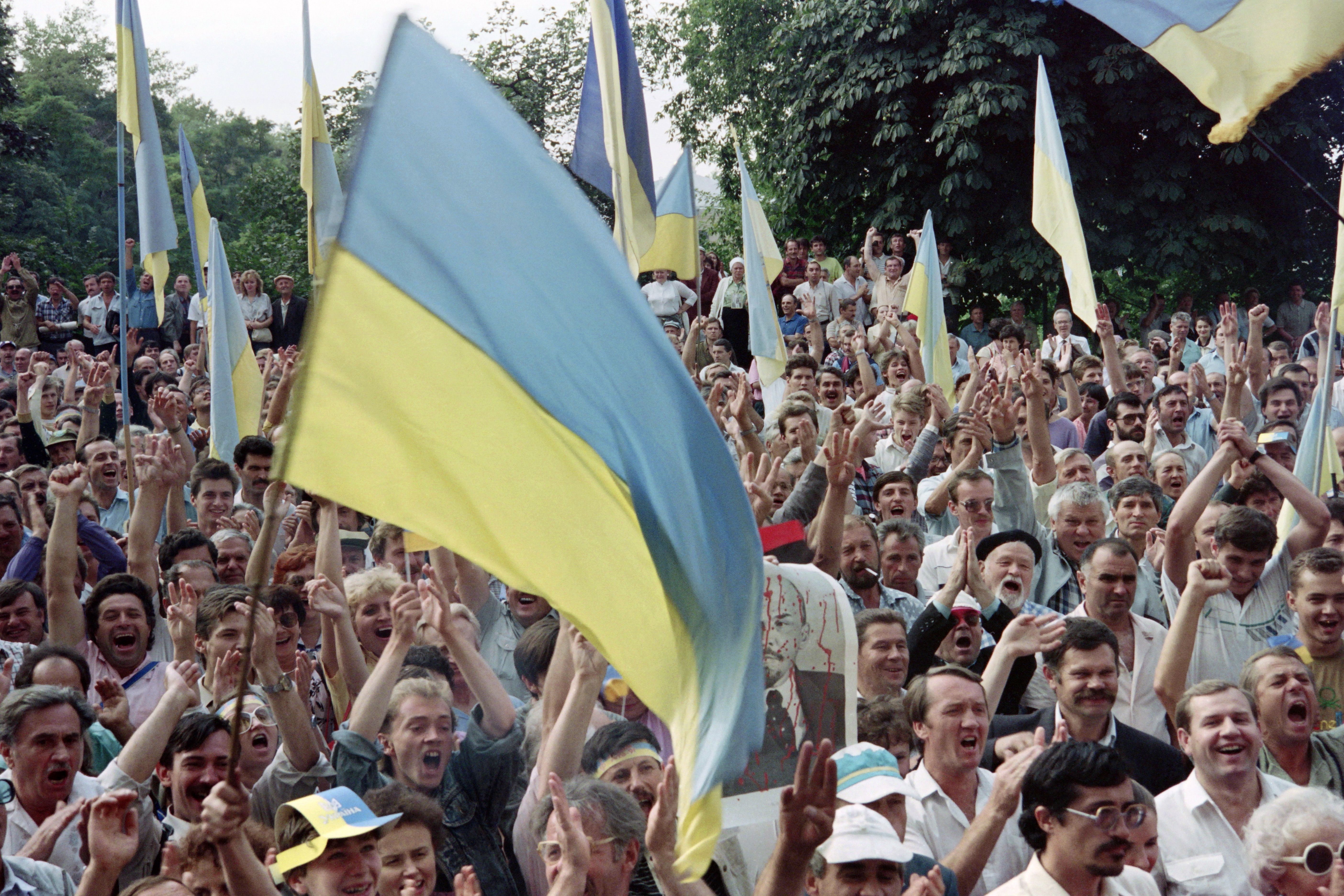
The Kyiv Independent: One of the most damaging narratives of Russian propaganda is the alleged rise of neo-Nazism in Ukraine. We know these claims are false. But how effective is this Russian propaganda narrative in Germany?
Franziska Davies: I think it was very effective during EuroMaidan and for a long time afterward. But the reality of the full-scale invasion has challenged this narrative.
One of the reasons why it worked so well in Germany is the history of German-Russian imperialism, which would very often also work with this narrative that the people between Russia and Germany are not capable of building their own states, are fanatic nationalists, and are dangerous. German nationalism, as we know, led to the war of annihilation and the Holocaust. Ukraine also had periods in history when this kind of extremist nationalism was strong. But on Maidan (Independence Square in Kyiv), we saw in the vast majority of protests a different kind of nationalism as a symbol of the European Ukrainian nation, freedom, the rule of law, and European integration.
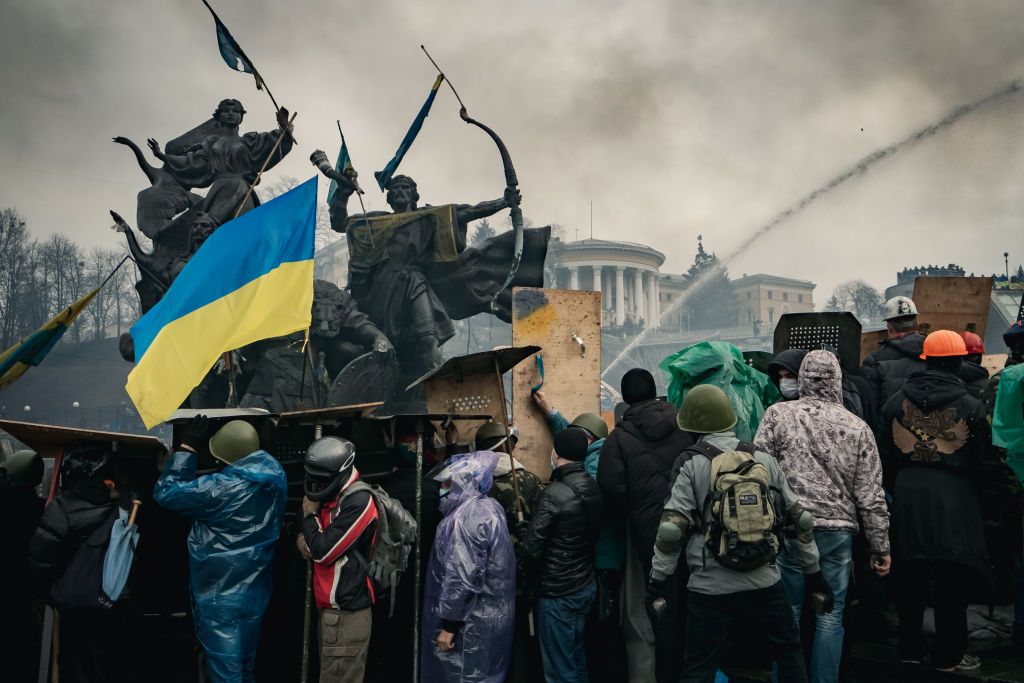
We (Germans) never had national self-liberation grounded on a revolution. Germany did not free itself of Nazism and German imperialism, it was defeated militarily. Therefore, there was a lack of empathy to understand that nationalism can have the potential to be anti-imperial and to be liberating.
Because of this imperial heritage, Ukraine was a blind spot for Germans. Its history and culture are not very well known, quite in contrast to Russia. And if there is a blind spot, propaganda narratives can easily fill it with falsehoods.
The Kyiv Independent: As you mentioned earlier, many Germans see Russia as the sole successor of the Soviet Union, which raises the topic of collective responsibility for World War II events. How do you think this affects Germans' perception of Russia's war against Ukraine and German policies on it?
Franziska Davies: Very often, when people speak of the Soviet Union, they would just say Russia because they would not perceive it as a multi-ethnic and multinational colonial empire. This can be explained by the dominance of Russian culture and language created by Russian imperialism that was ingrained in the structure of the Soviet Union. Because of this cultural Russification, the (German) responsibility for World War II has been centered on Russia and not so much on Belarus, Ukraine, or even Poland, which was the first country Germany attacked.
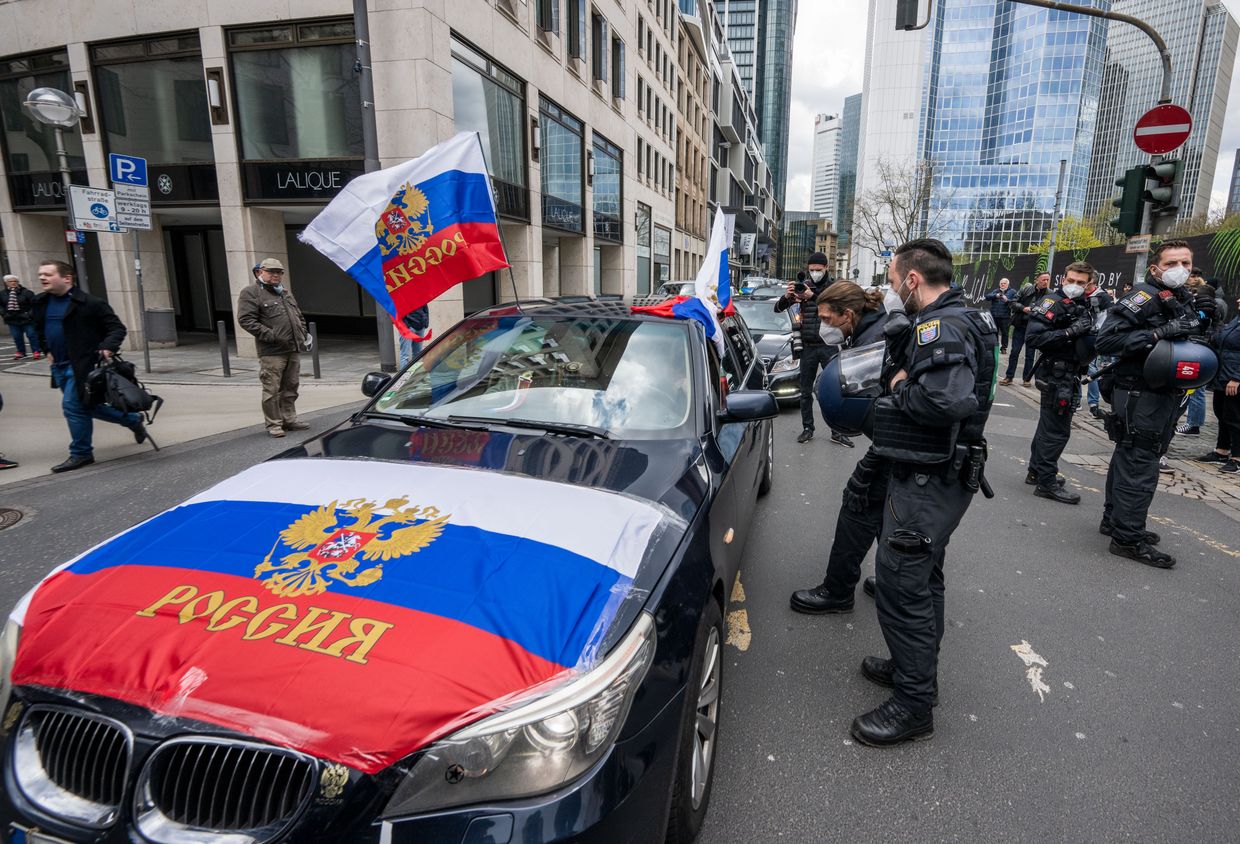
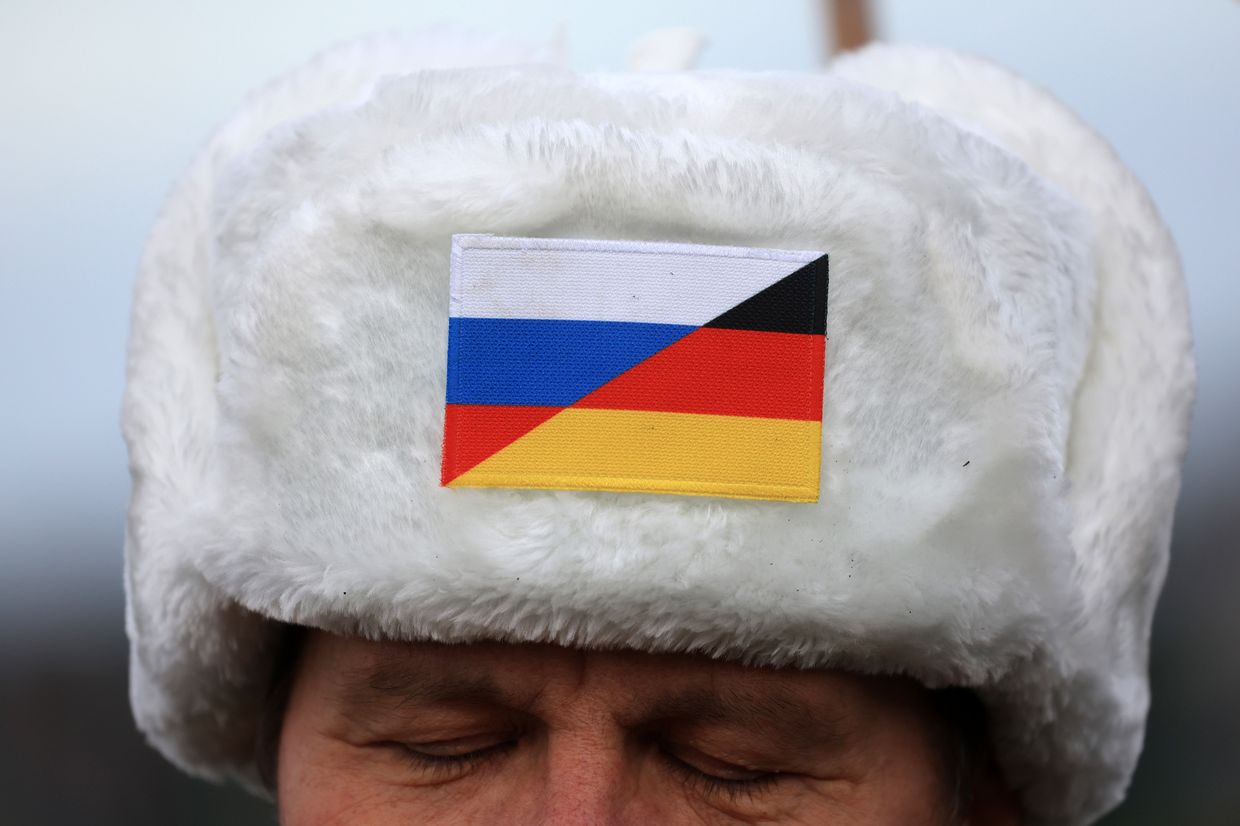
This Russification of the Soviet Union is still present to some extent for some politicians. This approach completely ignores the fact that after the end of the Soviet Union and the emergence of sovereign nations in Eastern and East-Central Europe, it's just not acceptable to speak only to Russia without consulting other countries in the region.
There is a tendency to not see Russian society as responsible for the war, to perceive this as Putin's war, something done by a small elite group in the Kremlin, for which you can't really hold Russian society responsible. In a way, this is a repetition of our own history. What some Russian people who claim to be anti-Putin write about the responsibility of Russian society is very similar to what Germans wrote about themselves in the 1950s and beyond, presenting German society as a victim of Hitler.
The Kyiv Independent: What other aspects of World War II's impact on Ukraine are often overlooked in Germany or Western Europe?
Franziska Davies: There's this self-perception in German memory culture that no nation has been so successful in reckoning with its own past as Germany. However, as a historian, I see how little is actually known about World War II's history. The conflation of Russia with the Soviet Union is one example; another is the remembrance of the Holocaust.
The Holocaust is mostly associated with Auschwitz, the concentration camps and camps of annihilation of Jewish people and Roma and Sinti, but not so much with the so-called Holocaust by Bullets. The majority of Soviet Jews, including Ukrainian ones, were not murdered in concentration camps but were shot. The German army would move into a village or town, the death squads of the SS (the Schutzstaffel) would go behind, then gather all the Jews and shoot them. This kind of murder of Jewish people is not well remembered in Germany because, in this crime, the supposedly “normal German soldier” is much more involved. He was at least a witness, but he was also very often a collaborator with the SS. Babyn Yar in Kyiv is an example where the decision to kill the Jews and how and where to kill them was made in collaboration between the Wehrmacht and the SS squads.
For Germany, the most important memorial site of World War II’s Eastern Front is Stalingrad, a city that is now in Russia. Germans connect this place not to German guilt but to German victimhood. This motif of Stalingrad being the place where “poor soldiers, the regular German young men, were left to die by Hitler and ended up in captivity” is still very strong. For me, very shocking in this respect was a popular drama series dedicated to the supposedly “normal Germans” in World War II, where they are portrayed as good people who were just born at the wrong time in the wrong place. The only roles Ukrainians and Poles had in this production were collaborators and anti-semites.
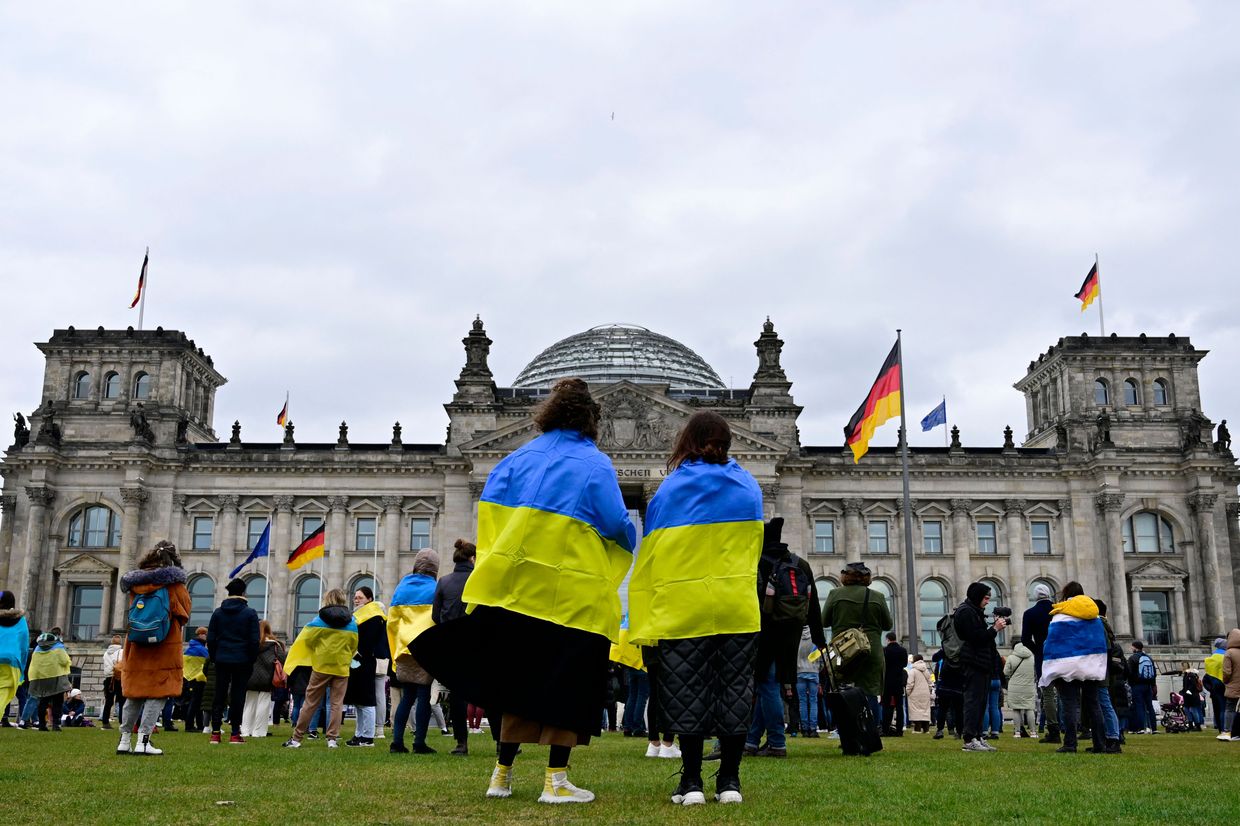
The Kyiv Independent: One of your academic interests is Russification. We in Ukraine know very well what it is because we have lived through it for centuries. But how do you explain this concept to Germans and other Western Europeans?
Franziska Davies: I always talk about the secret decree of (then-Interior Minister of the Russian Empire Pyotr) Valuev in 1863. The decree prohibited the use of the Ukrainian language, saying that it does not exist. With this example, you can show the paradox of Russian imperialism in Ukraine. On the one hand, Ukraine's existence is denied, on the other hand, the Ukrainian culture and language are actively suppressed and extinguished. During Soviet times, it gets genocidal, as it was with the expulsion of the Crimean Tatars in 1944. This policy involves changing the demographic landscape of a region through deportations and mass murder, settling Russians there, and then claiming something as Russian. We are now seeing the repetition of these policies in the Ukrainian regions occupied by Russia.
It’s also important to point out that you cannot equate Russian speakers with Russians or ethnicize the use of the Russian language with a person's political identity because this is exactly the propaganda tool Putin was using. As a reaction to Russia's aggression in 2014, some German politicians were saying that Ukraine must protect its Russian-speaking citizens. It happened amid the absurd situation that for decades, one could express their opinion freer as a Russian speaker in Ukraine than in Russia, where the freedom of expression is by now basically non-existent.
The Kyiv Independent: How do you think the Germans and Ukrainians can rethink their historical links, similarities, and differences and better understand each other? What could be the possible points of contact?
Franziska Davies: I think a lot is already happening. Many people in Germany who had never dealt with Ukraine or knew anything about it before 2022 are now extremely active in helping Ukraine on various levels. Your perception of a country changes when you go there, speak to the people, and meet them. This is already part of German-Ukrainian history.
We also have to get a lot more serious about teaching the history of Russian and German imperialism in the 18th and 19th centuries. This period shaped the history of Eastern and East-Central Europe and needs to be much better understood at the level of schools and universities. This would also include challenging certain patterns of memory culture in German society.
Having people who are engaged is great, but it's also crucial that these people come together and build lasting networks and institutions.
Note from the author:
This is Dinara Khalilova, the author of this interview.
One of the Kyiv Independent’s main goals is to debunk popular misconceptions about Ukraine and help the world better understand our country. If you feel that we are doing a good job, please consider becoming a member of the Kyiv Independent’s community. Only your support keeps us going.
